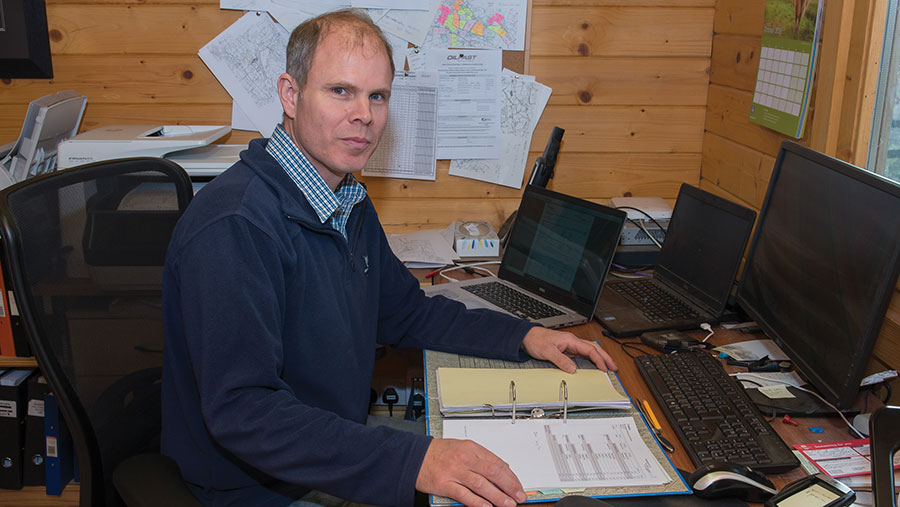Farmer Focus: Unmovable gravel deposits leads to flooding
 Robert Drysdale © Angus Findlay
Robert Drysdale © Angus Findlay Like most of the UK, we have suffered from an extremely wet spell since I last wrote.
October and November are our wettest months and, with 257mm of rain falling in October, I think its place as the wettest month will be safe for a few years.
In fact, it’s the second wettest month I have ever recorded in 25 years here, resulting in the River Don bursting its banks three times in the month.
Even more frustrating is the unwillingness of the Scottish Environment Protection Agency to allow landowners to remove gravel deposits from rivers.
See also: UK wheat area drop and shift to spring drilling is forecast
This is undoubtedly holding back water, causing flooding upstream and also changing patterns of flow, washing away banks and silting up areas downstream.
Overall, winter crops look quite well, but we probably have 6ha of winter wheat which either washed away or rotted out.
It’s always disappointing to start the season with patchy crops, as there’s a long time to look at them until next harvest.
As a result of the weather, it looks like more spring barley will be sown across the country.
Just as the last of the malting barley had been uplifted, merchants were warning that we needed to order seed for next year to ensure its availability.
Hopefully, this increase in the spring barley crop does not put too much pressure on malting premiums next year.
We may be able to counter this risk with higher base prices on wheat futures-based contacts.
Laureate and Diablo will again be our choice, along with an area of Golden Promise, determined by demand and the contract price.
This week, I will be completing a carbon audit for one of our farms, which will be the third time for this business.
It will be interesting to see if progress has been made, particularly in fuel use, or whether the influence of the weather is the dominant factor.
There is no doubt that audits such as this will become more important in the future for customers, particularly the whisky distillers and for access to government support.
Hopefully, the data provided will help drive efficiencies in the business to bring financial, as well as environmental benefits.


